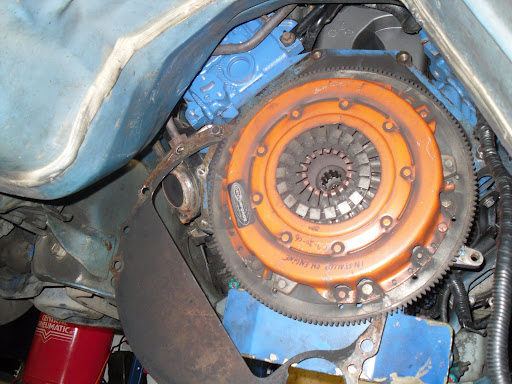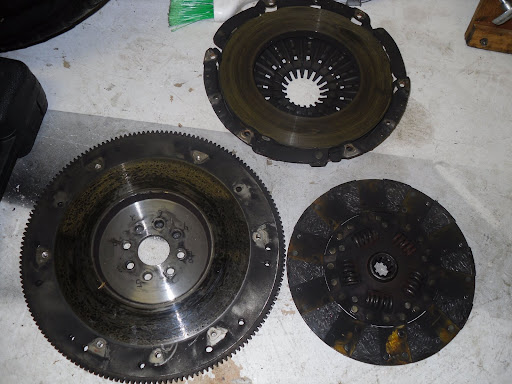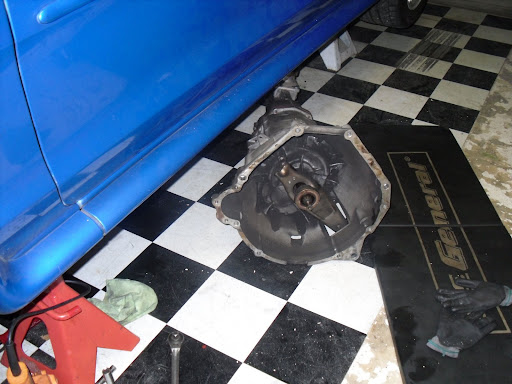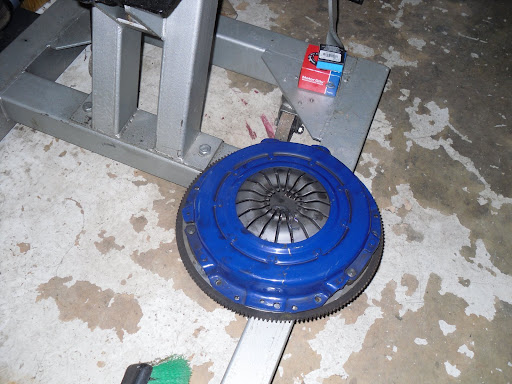atlblue98gt
Greer, SC
the old clutch before it came off.

the clutch and flywheel after i removed them

The tranny is out!

New clutch awaiting install.

the clutch and flywheel after i removed them
The tranny is out!
New clutch awaiting install.

